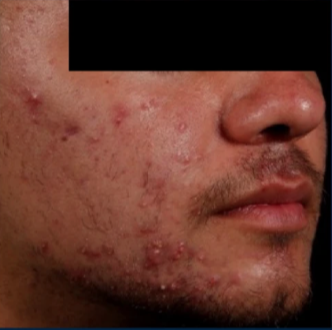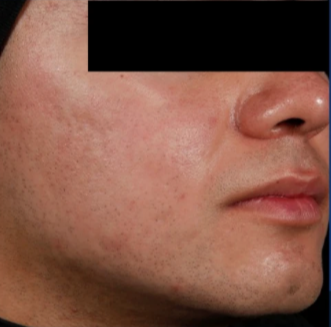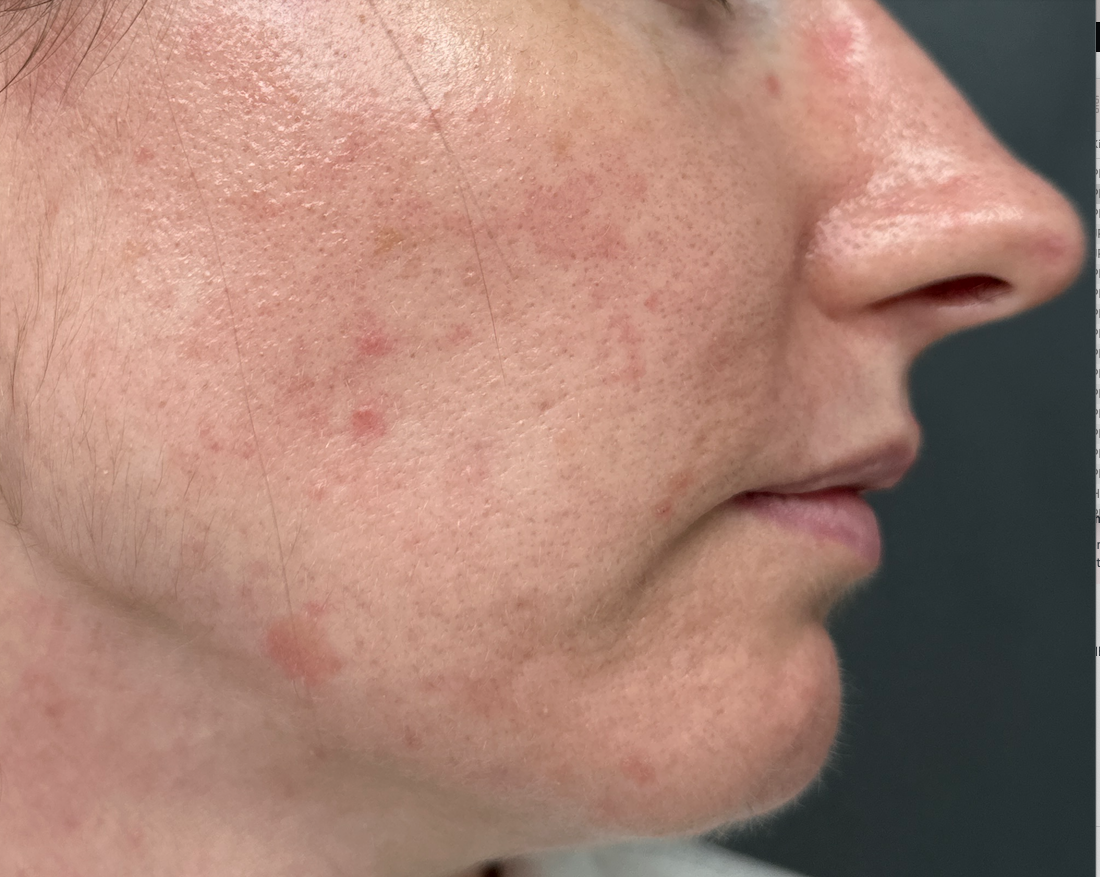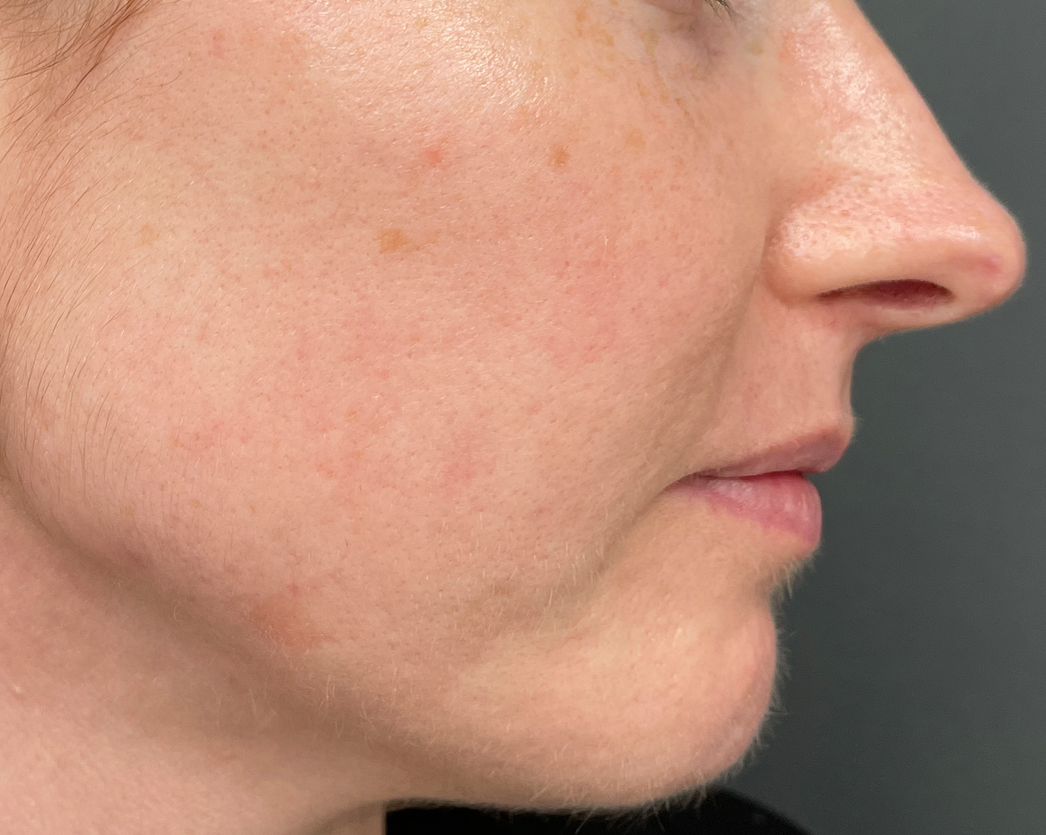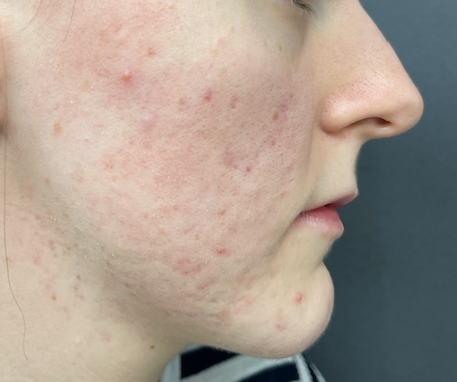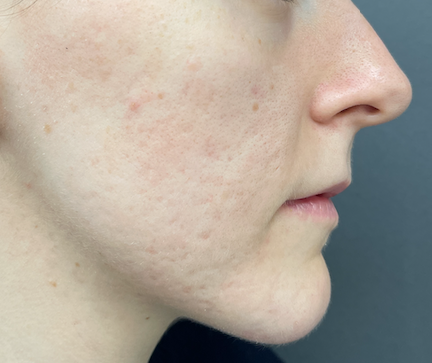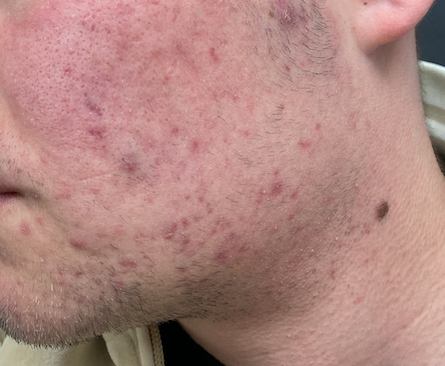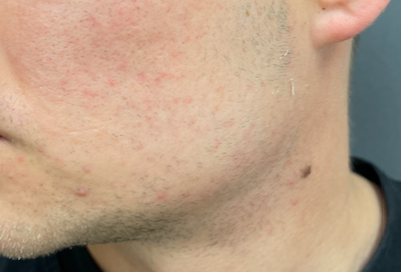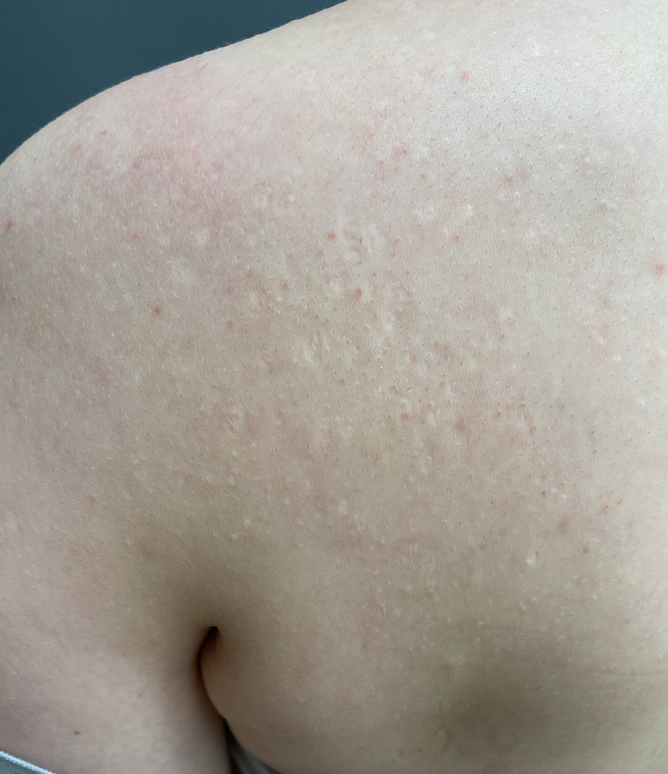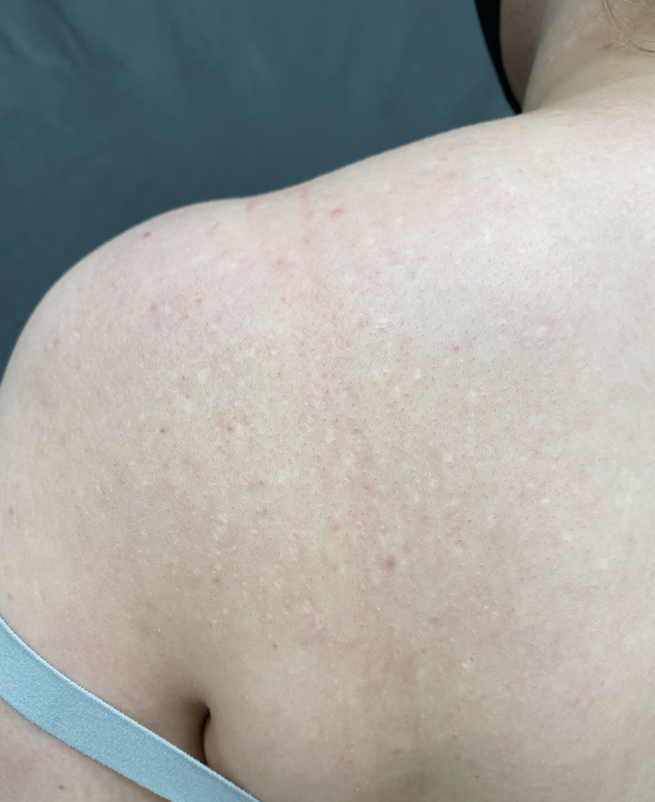Here are a range of laser and energy-based devices that Dr Nicole offers to treat acne and acne scars:
- AviClear laser
- How It Works: Acne is driven by an overactive sebaceous glands which causes an overgrowth of bacteria colonisation and subsequent inflammation in the skin. AviClear laser uses the 1972nm wavelength to selectively target and suppress the overactive sebaceous glands.
- Benefits: By targeting the sebaceous glands, this laser treats acne at the source, and the clinical trials have shown that AviClear laser provides long-term results.
2. Cutera Excel V+ laser
- How It Works: Cutera Excel V+ laser uses dual wavelength 532nm and 1064nm to target both superficial and deeper red blood vessels, which causes redness on the skin. These two wavelengths can also target some pigmentary lesions and the deeper wavelength of 1064nm also targets collagen which stimulates collagen synthesis and remodelling.
- Benefits: By getting rid of the damaged red vessels due to severe inflammation from acne, this laser is effective at improving acne red marks and gives an overall glow to the skin.
3. Cutera Enlighten SR laser
- How It Works: Cutera Enlighten SR laser uses dual wavelength 532nm and 1064nm at picosecond duration to selectively destroy excessive pigment in the skin. This laser uses a photo-acoustic effect which causes minimal heat damage to the surrounding tissues, therefore making it an effective and safe laser for treating pigmentation in darker skin types. It also has a resurfacing Fx mode to improve the overall skin texture and treat acne scarring.
- Benefits: By selectively destroy pigment in the darker areas, this laser can help to improve post-inflammatory pigmentation due to acne. The Fx resurfacing mode can treat uneven skin texture due to acne scars.
4. Tixel resurfacing
- How It Works: Tixel resurfacing uses Thermo-Mechanical Ablation (TMA) technology to transfer heat into the skin to stimulate collagen remodelling. This device offers a non-invasive way of resurfacing and remodelling the skin.
- Benefits: Tixel resurfacing is a non-laser way of stimulating collagen synthesis and remodelling, which helps to improve acne scars. Published trials have shown that the heating effect in the skin by Tixel can be comparable to Co2 and erbium laser beams, but with reduced downtime and faster healing.
Considerations before Lasers
- Skin type: Different lasers are suited for different skin types. At your consultation, your skin type will be assessed and the appropriate laser technology will be discussed with you.
- Severity of disease: Depending on the severity of your acne and/or acne scars, a combination treatment approach incorporating skin care, topical treatments, different laser technology may be needed to tackle each aspect of the condition effectively. A combination treatment approach is usually most effective at getting the best outcome for your condition.
- Treatment regime: Lasers / Tixel resurfacing are usually recommended at monthly intervals for 3-6 sessions (ie. once a month for 3 to 6 times) to get an improvement in your skin condition. Maintenance regime is usually recommended after a course of the initial treatment, to maintain the results against skin ageing, and the regime is usually 2-3 times per year.
- Side effects: Common side effects of lasers include most commonly redness (usually 1-3 days, rarely longer) and potentially mild flakiness/scabbing. Rarely, swelling, sunburn-like reaction, pigmentary changes and scarring can happen. A test patch is always recommended at the start of treatment to reduce the risk of these potential side effects.
Consultation with a Dermatologist
Consultation with a Dermatologist is key in getting the diagnosis and treatments right. Some patients can have more than one diagnosis, for example, it is not uncommon for Dr Nicole to see both acne and rosacea occurring in the same individual, or acne and eczema occurring in the same individual. These complex cases will need to be managed carefully. With her experience in lasers, aesthetic and medical treatments, Dr Nicole is able to combine the different treatments with lasers to help you achieve the best desired outcome for your acne and acne scars.

